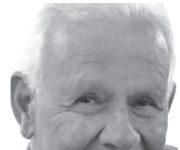By GAIL MCNULTY
The UN’s October Climate warning is terrifying. We need profound changes in the next 10-12 years to build a more equitable world and sustain life as we know it. News of increasingly destructive, deadly California forest fires offer a grim vision of how continuing with “business as usual” might impact us locally.
Luckily, Santa Cruz County — bolstered by a proud history of environmental activism with funding allotted in Measure D — is well-positioned to lead by example showing mid-size communities around the world how to evolve in time to help save the future of humankind.
The cars we drive are the biggest local source of CO2 emissions. Getting as many people as possible out of cars and onto eco-friendly buses, rapidly-evolving transit options, bikes, e-scooters, etc. soon could dramatically reduce local greenhouse gas emissions.
Unfortunately, our buses are stuck in traffic, our car-dominant streets are unsafe, and the Regional Transportation Commission may soon approve an unrealistic, train-centric plan projected to help few — barely denting our CO2 emissions by 2035 — too little too late to make a difference.
Impactful climate change planning must be affordable, adaptable, and easy to implement — like a better bus system and a protected bike network. However, since most voters drive cars, letting go of parking and lanes to prioritize buses and install protected bike lanes will require tremendous political will — equal or greater than the tireless efforts Save Our Shores founders put forth to protect our marine sanctuaries 40 years ago.
“Losing Earth: The Decade We Almost Stopped Climate Change,” an August 2018 New York Times Magazine story about 1979-89 describes how the future is always in jeopardy because industry exerts unchecked power over government and officials rarely possess enough courage and compassion to think beyond low-risk policies during their elected terms.
Perhaps recent fire-induced air quality warnings will help California leaders to expand their thinking and empathize with those harmed by inequitable planning. As California wins praise for “progressive climate policies,” refinery emissions continue to harm residents in mostly low-income and minority areas. In September, the LA Times reported 87 continuous days of smog — nearly three months without clean air.
To save our future we must separate democracy from industry. To revive vulnerable communities today and protect everyone who will walk this Earth tomorrow, we need to keep fossil fuel in the ground and say no to all who profit from it.
Sadly, Santa Cruz County is not immune to fossil fuel industry influence. Six months after local leaders sued fossil fuel companies over climate change, some of these same leaders invited a midwest freight rail operator led by former oil industry leaders to try to turn a profit here — squashing all that has been promised for this corridor. The public knows little about Progressive Rail’s plans for our branch line or how the Watsonville community, already suffering disproportionately from poor transportation planning, might be impacted by potentially harmful industrial growth.
Another scary example of moneyed interests steering our future, one of the primary local train proponents works for NEED.org. A 501c3 nonprofit backed by the fossil fuel industry, NEED.org funds school solar projects and supplies free curriculums to K-12 schools to ensure children learn that clean renewables shouldn’t replace fossil fuels.
Our little county’s choices may seem insignificant but unless leaders everywhere wake up and take bold action, our children face an uncertain, frightening future. We can and must heal our divided communities, build optimism strong enough to conquer climate-fear paralysis, and come together to support our local officials in making bold, beautiful choices needed to reinvent tomorrow.
Let’s get transportation right then rethink everything. We need to launch a movement to save humankind!
•••
Gail McNulty is a resident of Santa Cruz County. Her opinions are her own and not necessarily those of the Pajaronian.










